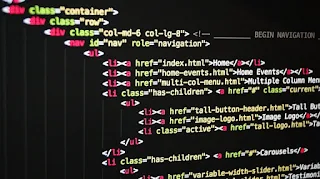Coding is a skill practiced by a diverse range of individuals worldwide, including students, professionals, hobbyists, and enthusiasts.
People from various fields such as software development, web
development, data science, artificial intelligence, and more engage in coding
to create applications, websites, software solutions, and analyze data.
Coding is not limited to a specific group, and individuals
with different backgrounds and interests may learn and apply coding skills for
various purposes, from building software to solving complex problems.
Whether you're a computer science student, a professional
software engineer, or someone learning to code as a hobby, the world of coding
is open to anyone interested in exploring it.
Coding and programming refer to the process of creating sets
of instructions (code) that a computer can understand and execute. Here's a
breakdown:
Coding: This term is often used
interchangeably with programming. It involves writing the code, which is a
series of instructions that a computer follows to perform a specific task.
Coding is essentially the act of translating human logic into a format that a
computer can understand.
Programming: Programming is a broader term that
encompasses various activities related to developing software. It includes not
only coding but also tasks such as problem-solving, designing algorithms,
debugging, and testing.
Programmers use programming languages to communicate with
computers and create software applications.
In essence, coding is a subset of programming, and both
involve the creation of instructions for computers to execute tasks.
Programmers use languages like Python, Java, C++, and many
others to write code that powers software, websites, mobile apps, and other
technological solutions.
Easiest programming
language for beginners
Python is often considered one of the easiest programming
languages for beginners. Its syntax is clear and readable, making it
user-friendly for those new to coding. Python is versatile and widely used in
various fields, including web development, data science, and artificial
intelligence.
Additionally, Python has a large and supportive community,
abundant online resources, and a vast collection of libraries and frameworks
that simplify many tasks.
Other beginner-friendly languages include Scratch, a visual
programming language designed for beginners, and JavaScript, which is commonly
used for web development and has a relatively forgiving syntax.
Learn coding as a
beginner in 10 simple steps
1. Choose a Programming Language: Start with a beginner-friendly language like Python,
JavaScript, or Ruby. Each has its strengths and use cases.
2. Understand Basic Concepts: Learn fundamental concepts like variables, data types,
loops, and conditionals. Online platforms like Codecademy, Khan Academy, or
freeCodeCamp offer interactive tutorials.
3. Practice Regularly: Coding is a skill that improves with practice. Work on small projects,
solve coding challenges, or contribute to open-source projects.
4. Use Online Resources: Take advantage of online resources like tutorials, documentation, and
forums. Websites like Stack Overflow, GitHub, and W3Schools can be valuable.
5. Take Online Courses: Platforms like Coursera, edX, and Udacity offer structured courses on
coding. They often cover more in-depth topics and provide certificates upon
completion.
6. Read Books:
Consider reading programming books to gain deeper insights into coding
principles. Recommended books depend on the language and your interests.
7. Build Projects:
Apply your knowledge by building real-world projects. This helps reinforce what
you've learned and provides a portfolio for showcasing your skills.
8. Join Coding Communities: Engage with the coding community. Join forums, attend
meetups, and participate in online communities. This can provide support,
networking opportunities, and exposure to different perspectives.
9. Seek Feedback:
Share your code with others and seek feedback. Constructive criticism can help
you improve and learn new approaches.
10.
Stay Updated: Technology evolves, and staying
updated is crucial. Follow industry news, new releases, and emerging trends to
keep your skills relevant.
Remember, the key is persistence and
consistency. Learning to code is a journey, and each step contributes to your
overall understanding and proficiency.


0 Comments